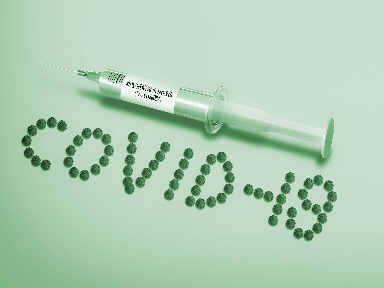europeanpharmaceuticalreviewJuly 14, 2021
Tag: blood cancer , COVID-19 Vaccine , Janssen , EMA , PRAC
In its July meeting, the European Medicines Agency (EMA)’s Pharmacovigilance Risk Assessment Committee (PRAC) agreed that Janssen COVID-19 Vaccine should not be used in those with a history of capillary leak syndrome, among other decisions.
The PRAC concluded that there is no evidence that Zynteglo, a gene therapy for the blood disorder beta thalassaemia, causes a blood cancer known as acute myeloid leukaemia (AML). The PRAC reviewed two cases of AML in patients treated with an investigational medicine, bb1111, in a clinical trial for sickle cell disease. While there have been no reports of AML with Zynteglo, both medicines use the same viral vector. However, the committee found that the viral vector was unlikely to be the cause of AML development, or insertional oncogenesis.
It concluded that more plausible explanations for the AML cases included the conditioning treatment the patients received to clear out bone marrow cells and the higher risk of blood cancer in patients with sickle cell disease.
The PRAC concluded that myocarditis and pericarditis can occur in very rare cases following vaccination with Comirnaty and Spikevax (previously COVID-19 Vaccine Moderna). They undertook an in-depth review of 145 cases of myocarditis and 138 cases of pericarditis in the European Economic Area (EEA) as well as looking at cases worldwide.
The PRAC is therefore recommending listing myocarditis and pericarditis as new side effects in the product information of these vaccines and they are advising healthcare professionals to be alert to the signs and symptoms of myocarditis and pericarditis.

The PRAC reviewed three cases of capillary leak syndrome in people who had received the Janssen COVID-19 Vaccine which occurred within two days of vaccination. The committee have now recommended that people who have previously had capillary leak syndrome must not be vaccinated the Janssen COVID-19 Vaccine and that capillary leak syndrome should be added to the product information as a new side effect of the vaccine.
The committee stated that healthcare professionals should be aware of the signs and symptoms of capillary leak syndrome and of its risk of recurrence in people who have previously been diagnosed with the condition. The PRAC will also continue to monitor for cases of the condition.
The committee recommended a change to the product information for Vaxzevria (formerly COVID-19 Vaccine AstraZeneca) to include a warning to raise awareness of cases of Guillan-Barre syndrome (GBS) reported after vaccination.
They assessed all the available evidence, including cases reported to the European database for suspected side effects (EudraVigilance) and data from the scientific literature, however the available data neither confirms or rules out a potential association with the vaccine.
In view of the seriousness of this rare condition, the PRAC recommended adding a warning for GBS in Section 4.4 of the Summary of product characteristics and in section four of the patient leaflet for Vaxzevria of potential risk. They added that healthcare professionals should also be alert of signs and symptoms of GBS and people taking the vaccine are advised to seek immediate medical attention if they develop weakness and paralysis in the extremities that can progress to the chest and face.
The benefit-risk balance of the vaccine remains unchanged. EMA will continue to closely monitor the issue and will communicate when new information becomes available.


Contact Us
Tel: (+86) 400 610 1188
WhatsApp/Telegram/Wechat: +86 13621645194
Follow Us:




 Pharma Sources Insight January 2025
Pharma Sources Insight January 2025


